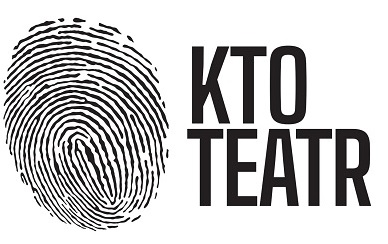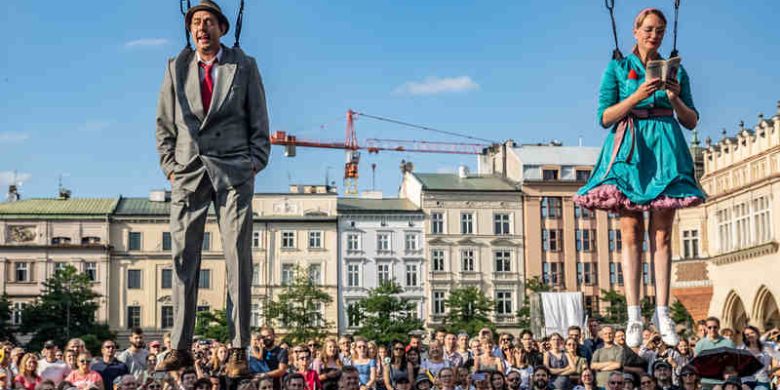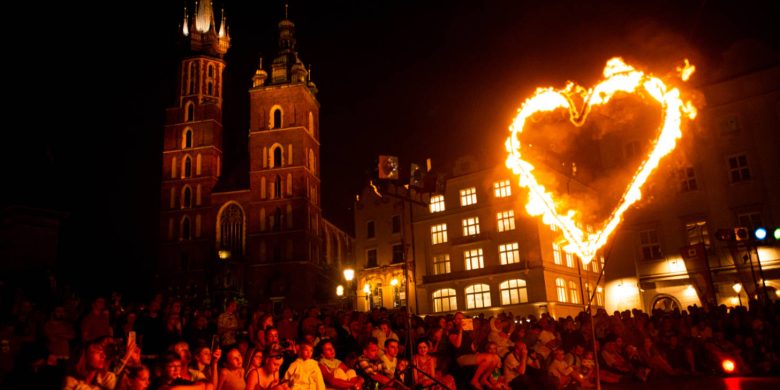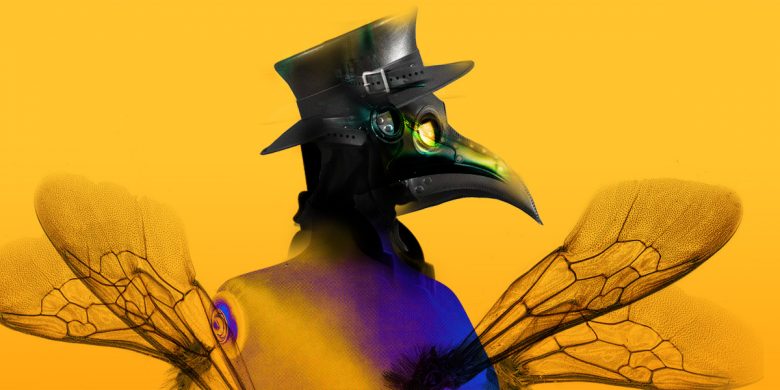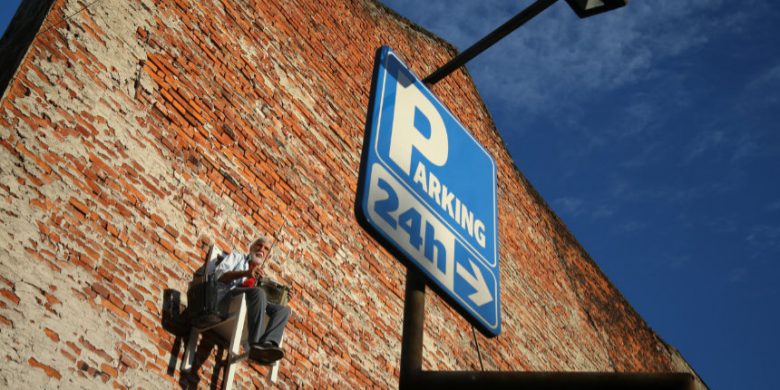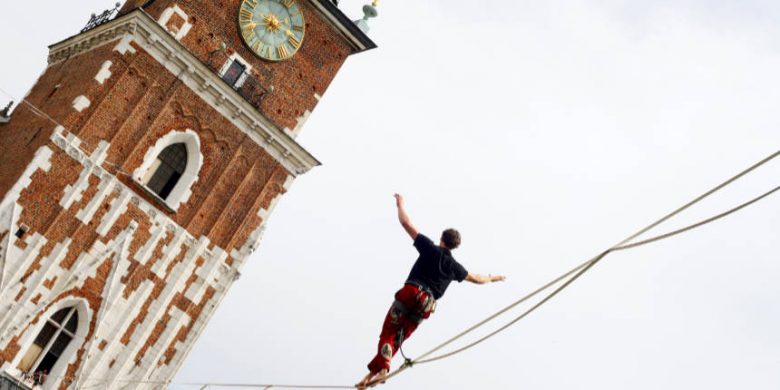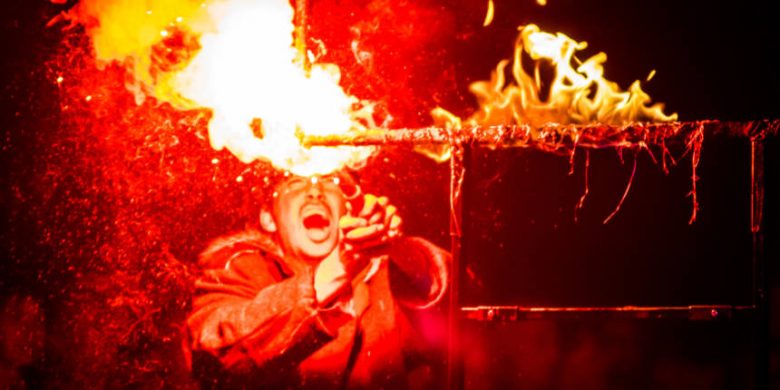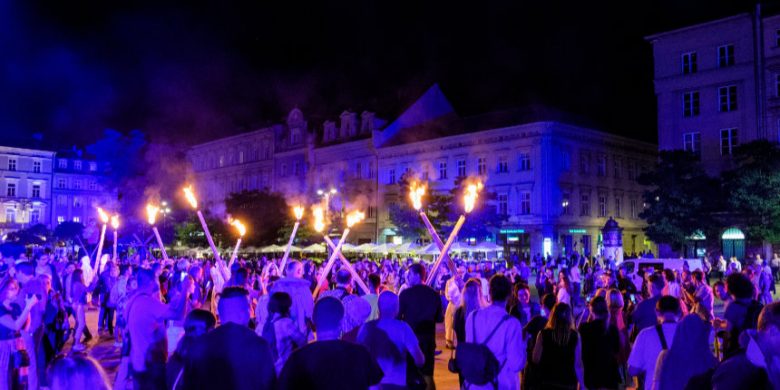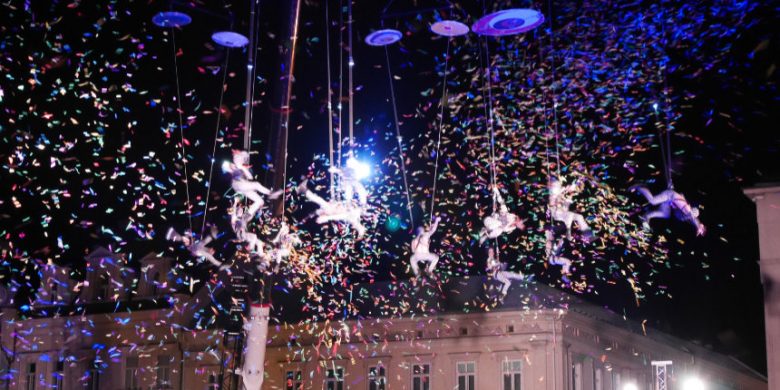38. ULICA Festival
4-6 and 13-15 July 2025
The ULICA Festival is an international festival of street theaters organized in Krakow since 1987 by the KTO Theatre. It stands as one of the oldest festivals of its kind in Central Europe. The ULICA Festival showcases a variety of performances including monumental spectacles, theatrical plays, happenings, clown shows, puppet shows, fire shows, and many other events.
As a flagship event in the Lesser Poland Voivodeship, the ULICA Festival is globally recognized. It attracts over 180 artists from around the world each year, along with tens of thousands of residents and tourists.
Performances take place in July at Krakow’s key squares, including the Main Market Square, Szczepański Square, the Little Market Square , Jan Nowak-Jeziorański Square, and many others.
In recent years, the festival has expanded its activities, presenting performances in other Lesser Poland cities such as Niepołomice, Wieliczka, Limanowa, and Tarnów.
The festival aims at presenting the latest trends in global street theatre art. Since its inception, Jerzy Zoń has been the artistic director of the ULICA Festival.
Co-financed by the Minister of Culture and National Heritage.

This year’s slogan of the festival has a metaphorical dimension, as it expresses a childish, even naive sense of happiness from the return to normality. This is the first year fully devoid of pandemic restrictions. Therefore, together with the invited artists, we will celebrate the biggest festival of street theater in Poland.
When another Don Quixote arrives in Krakow at the beginning of July to stand by the jugglers frolicking in the Main Market Square, even the old Cervantes’ ape of Master Peter, large, without a tail and with hairy buttocks, may not save Jerzy Zoń’s three-day illusion. Although he is not a hidalgo but, let’s say, a plumber by the name of Stefan, and not from La Mancha but from the Nowa Huta district of Krakow, he is still, just like the primary Don Quixote, touched by an uncontrolled faith in fairy tales. Such a gentleman may arrive on the 8th, 9th or 10th of July in the Main Market Square, coming from the side of Floriańska Street, to watch the performances of the freaks brought by Jerzy Zoń to ULICA – the 35th International Festival of Street Theatres. And should it happen that Stefan Quixote runs into „Don Quixote” by the HoM Theatre, a bloodless massacre may take place. Right. And if the HoM Theatre’s show includes a scene presenting a performance of a travelling theatre of paper puppets animated by Master Peter, the situation in the Main Market Square will become dangerous. Just as it has been in Cervantes’ menacing words for more than four centuries.
”In other words, yesterday will return. Life will be again like it used to be before we began to stealthily sneak by the walls – The ULICA Festival will commence,” says Paweł Głowacki, the author of Patient Fables written specially for the 34th edition of the Festival.
In other words, monumental shows, phenomenal theatrical performances, happenings and other festival events return to the streets. „Jerzy Zoń’s summer theatre ritual will return,” and it will bring happy moments and surprises. Hope entangled with reflection to awaken the joy of life that pulsates within each of us.
When, over a year ago, I worked on the programme of the 33rd edition of the ULICA festival (“bizarre acts” being its leitmotif) I did not expect that the start of the year 2020 would verify the sense of bizarreness of the developments around us.
Reality has changed our initial plans. The Festival had to be moved from its traditional dates in early July to the first week of September. The context of the mentioned “bizarre acts” has changed as well, which made us introduce some corrections to the programme, reflecting the need for a new glance at ourselves, at the sense of the presence of art in our life and of its manifestation in public space.
The leitmotif of the 32nd ULICA was the interpenetration of two fascinating worlds, circus and street theatre, their common roots and mutual inspirations.
During the four-day carnival, the squares and streets of Krakow turned into various theatre mansions beaming with excitement and emotion. Actors, jugglers, dancers, mimes, clowns and puppeteers, tightrope walkers, illusionists and stilt walkers – every spectator could find their own favourite.
The 31st ULICA introduced the Polish audience to the latest concepts, motifs and trends in street theatre in the culture of Asia. For the first time in the festival’s thirty-year history, we have presented in Krakow the best of South Korean theatre. Such a strong and diverse representation of artists from the Korean peninsula was unique among European street theatre festivals.
The evocative image of the life of people forbidden to read books, created by Ray Bradbury in his novel Fahrenheit 451, was the leitmotif of the 30th edition of ULICA. It is a vision of a terrifying future world of the ultimate civilisational and cultural catastrophe. A world that banned literature, art and philosophy, in which there is no place for individual or free thoughts and feelings. A world in which the few surviving books, which are the real and symbolic treasury of human knowledge, wisdom and freedom, are burned.
The 29th edition of the ULICA Festival presented a broad spectrum of Polish street theatre. The panorama of over thirty performances of 28 Polish theatres helped answer the questions posed by Jerzy Zoń, director and founder of ULICA, in the introduction to the festival programme. What are the roots of this theatre – the commedia dell’arte, the circus or perhaps the Schumann marionettes? Does it draw on the heritage of the Sowizdrzal theatre? Maybe it has its origins in the Polish tradition of Romantic theatre, abundant in poetry and bountiful metaphor, yet involved in political and social issues?
